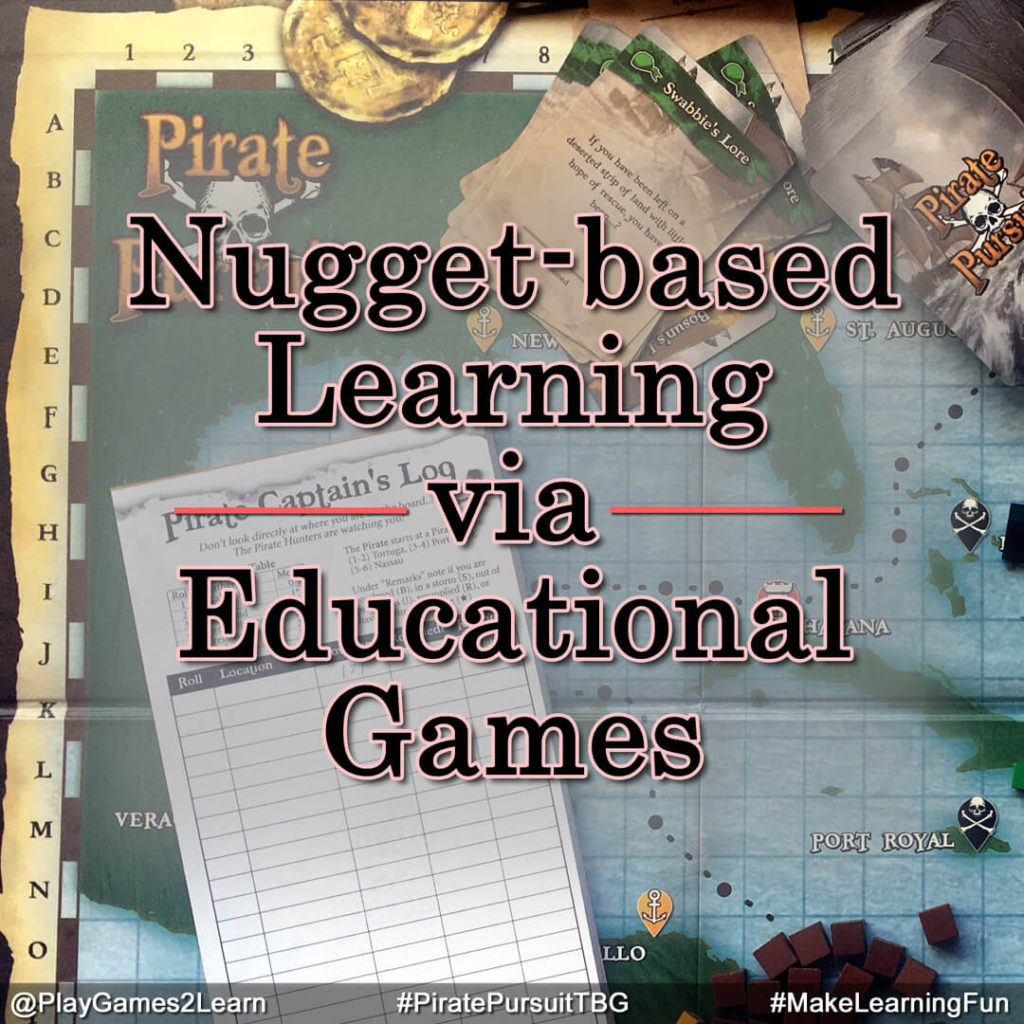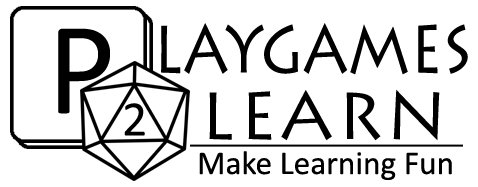
What is nugget-based learning? And how is it related to game design? Well…I was crafting the afterword for my historical novel where I mention how research drives continuous learning, and it got me thinking. In this technologically-enabled education climate it’s so easy to, almost accidentally, learn about something new. We’re all learning more and more via interest-driven, bite-sized pieces, or nuggets, of information.
Nugget: (1) A small, solid lump, especially of gold. (2) A small compact portion or unit: nuggets of information. – American Heritage Dictionary of the English Language, Fifth Edition via thefreedictionary.com
In the professional training industry, microlearning frequently refers to nuggets of information:
“With increased access to technology and media, modern learners are consuming microlearning or small learning nuggets every day.” – eWandzDigital
“…there is a clear shift in investment beyond the traditional learning management systems to investment in digital learning platforms. And these digital platforms will enable nugget-based learning, learning on the go, learning on-demand, and anywhere anytime learning.” – Microsoft / Tata Sons
Nugget-based Learning and Story Research
In a personal example, I recently came across the term “dolphin striker” when reading about sailing ships. Curious, I looked it up. Merriam-Webster.com cited the earliest usage as 1833. The setting of my novel is 1702. Did the ships from that time use something similar/different as a spacer in their bowsprit rigging? This led me to the HMS Falmouth, a ship that jumped out at me because of its construction date and because its name is the first location in my story. Of course, I followed the link for more information and found out it participated in battles during both the War of Spanish Succession and Jenkin’s Ear. Is that last one a place? Nope… 🙂
This is just one of the smaller research rabbit holes I’ve dived into when researching my novel or working on our educational board games (eg: where do eight-sided die occur in nature?). And as I say in my afterword, I always share this sort of thing with my family.
Typically the conversation starts off:
- Did you know…?” or “I just heard/read…”
Then there is often a connection or an association made:
- “It’s like…”, “That explains this…”, or “It reminds me of…”
This can lead to expanding/extending the discussion:
- “Should we look up…” or “I wonder if that means…”
Some of these conversations have been related to certain mathematical considerations I need to make sure are correct in my novel, such as:
- Ships approaching each other in the classic “two trains” word problem
- Distance to the horizon as a function of distance above the deck
- Average sailing speeds vs. top speeds possible
- Rate of supply consumption vs. storage capacity
- Angle a ship needs to be tilted in order to expose X feet of additional hull
- Weight of a fist-sized chunk of solid gold
Of course, none of these things, even the vocabulary, is directly called out for the reader. The story is #1 and these information nuggets are just there to be absorbed.
Nugget-based Learning and Game Design
However, in the case of our educational games, the nugget-based learning is often much more blatant. In fact, the game often revolves entirely around the information to be communicated, such as in “The Bone Game” or “Target Zer0”. Sometimes the nuggets are bit more in the background, like the math concepts being practiced in “Pirates vs. Skeletons” or “Miser vs. Miser”.
Our latest game is a bit of a mix. Here one player is the sneaky pirate and the others are the pirate hunters. Working together the pirate hunters are supposed to track down, corner, and capture the pirate before they can plunder the Spanish treasure fleet.
There is the usual practicing of multi-player soft skills, eg: strategy, verbal comprehension, social interaction, etc. But in this game there is also an educational mechanic that allows the pirate hunters to gain an advantage over the pirate by answering questions about pirate lore. The more pirate lore cards they collect, individually and as a group, the more benefits they gain in their hunt of the pirate.
We intentionally sought out historical facts that could be served in card-sized nuggets – real pirate lore that could individually inform but also, when taken all together, would provide a broader knowledge base for prompting further learning in adjacent and surrounding topics.
“After playing the game, the questions inspired us to start looking up more facts about that era, and we ended up watching all of the Pirates of the Caribbean movies.” – Geeks Collaborative Gaming
With the pirate lore cards grouped into three levels of difficulty, we don’t expect everyone to know all the answers the 1st, 2nd, or even 3rd time through. But with each replay, a player’s knowledge will increase, and maybe they’ll even become interested to learn more on their own.
[For more information (and pictures!) about this cooperative Scotland-Yard-style strategy game set in the world of pirates – take a look at “Pirate Pursuit – The Spanish Treasure Fleet”]
Summary
The creative activities of writing and game design are often educational, but reading and playing games can also be educational if the creators can find a valid, non-intrusive way to tie in relevant nuggets of information.
A gold nugget found in a stream that leads to discovering the motherload is one metaphor that comes easily to mind when thinking of nugget-based learning.
Another metaphor I use for embedding learning opportunities into a story or a game is: it’s like finding a prehistoric insect preserved in amber – the amber by itself is beautiful and worthwhile, but a piece containing a creature from our long-ago past makes it all the more interesting and valuable.
#MakeLearningFun. 🙂
Join our Community of Parents and Educators!
At Silverpath Publishing / PlayGames2Learn.com, we believe in #LearningThroughPlay to help #MakeLearningFun. We publish fiction and educational tabletop games for children and young adults.
To receive announcements about new releases and promotional discounts as well as invitations to participate as beta-readers or play-testers, subscribe to our mailing list.
